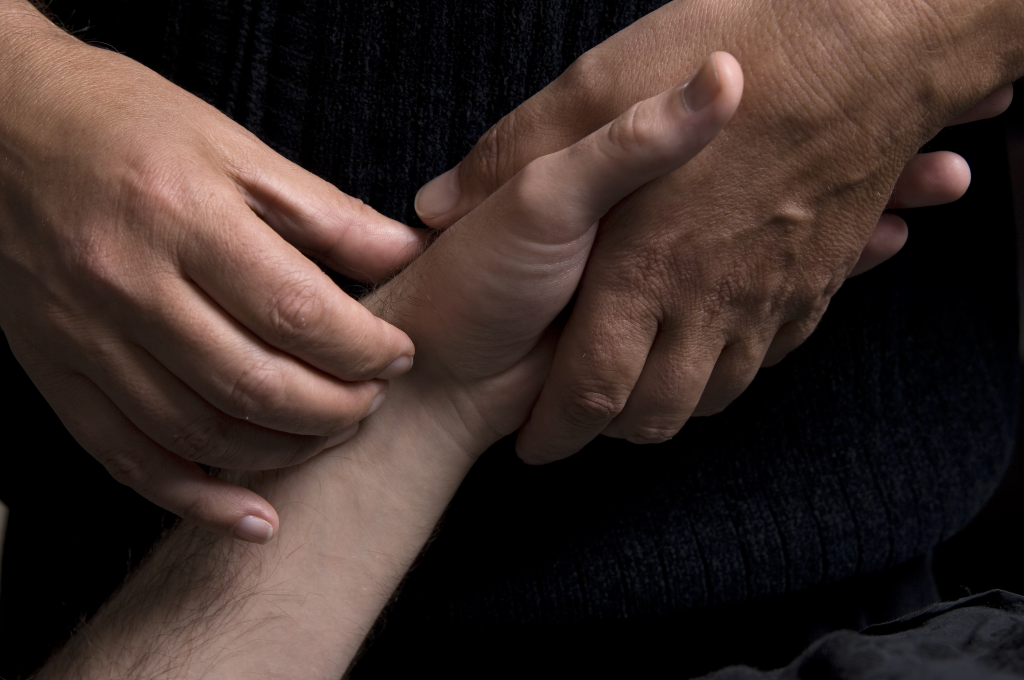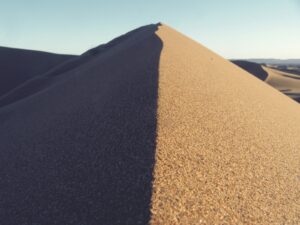Subscribe to the Newsletter
If you are interested in understanding how Traditional Chinese Medicine can improve your life sign up to my newsletter for the latest updates.

Constipation? How does Chinese medicine explain this, and what you can do about it?
There are lots of excellent books on your bowels – I mention a few below, but none of those I’ve read explain it with a universal theory that you can apply to anything.
What theory? Well, it’s been around for 3000 years and it has helped a huge number of people make sense of their lives. You can apply it to your car, your work, your life and your bowels.
In fact, as regards your bowels it is really explicit.
So what’t the theory? It’s the theory of yin and yang. Click the link to read more about it, but on this page I’ll show you how it helps you to understand what your bowels are doing!
It’s not just a theory, of course! It helps you understand what to do.
(By the way, this page is not complete. I add to it when I have time.)
Let’s list the main kinds of constipation. You could even have several kinds together:
We live in an era of information overload. So much knowledge, yet we often don’t know where to start, and once into it we get confused!

What if there were a theory that helps you burrow down to the essentials of a situation? A theory you can use again and again?
Wouldn’t that be worth learning?
Yang processes are heating, moving, drying and pushy. Because they are warming, they can be smelly. Yang often appears as Qi, energy, moving things along, or changing or trying to change things. (Yang people are inventive and adventurous, often produce change, and a thorough nuisance if you happen to like the status quo, the Yin condition you’re used to!)
When yang is excessive, you get signs of heat, which means a strong odour, dryness, possibly thirst, even a rash. Also, with excess yang, you’ll probably be irritable. Urine will be darker than usual, and your breath may smell foul. Check your pulse, and with excess yang it’s probably fast. Read more under yang excess.
When yang is deficient, you get signs of cold, inaction and a lack of peristalsis, the rhythmic movement in the walls of your intestines that gently nudges what you’ve eaten onward, churning it slowly so that it all gets exposed to the walls of your bowels where nutrition can be extracted, eventually to enter your blood. For more in general about this, click on yang deficiency.
With deficient yang, you’ll probably be listless, aimless or indifferent.
Yang deficiency can seem rather like yin excess, but there are important differences, explained below.
When Qi gets blocked, you get what is called Qi stagnation. Then things don’t move smoothly through your intestines, or only bit by bit. Often there is pain, somewhat cramping or tightening.
Yin processes are cooling, slowing, moisturising and lethargic. As they are cooling, they have less, or no smell. Yin often works in the form of Blood, nourishing and repairing. (Yin people tend towards complacency. Most people develop yin-type habits as they age – they move slowly, think slowly, and their bodies repair more slowly. They often lack vital heat.)
If yin is excessive, you get coldness, slowness and lethargy. Things build up and block you up. But when the stools finally arrive, they aren’t smelly, and may even be on the liquid side – but without much odour. Check Excess Yin.
If yin is deficient, you get a low-grade heating process, making you a little dry-mouthed or thirsty: but this ‘thirst’ is easily slaked by a few sips of water, or something cold in your mouth. Also, the ‘heat’ can in time make your stools drier and harder to shift, but even so, without much odour. For more in general about this, click on yin deficiency.
As they are dry, probably you have too much yang: excess yang.
However, just possibly you could get dry stools with deficient yin, so how would you know?
Excess Yang-type stools
With excess yang, you’ll often feel hot in yourself, often thirsty – for lots of water/liquid, your urine will be dark and reduced in quantity, your mouth dry and close friends may tell you that your breath is strong, if not foul. Being a hot person, your face may be red. If you’ve had this for a while, your abdomen will hurt until you can pass the stools.
Your skin may smell.
Younger people tend to have excess yang.
To confirm this state of excess yang, check your tongue and pulse. Your tongue will be red and may be covered in a yellow fur, and your pulse will be faster than normal.

There are two parts to the treatment. Some you can do yourself, but this usually needs treatment from a professional, unless you resort to over-the-counter solutions.
The underlying problem is that your body is generating too much heat. This could come from an inherited constitution, but more likely comes from a pattern of behaviour that encourages the creation of heat. It could easily come from eating too many ‘hot’-type foods or drinks. Read our page on hot-foods.
You should do something about this, because otherwise your excess-yang-type dry stools constipation will keep recurring, and you’ll keep taking over the counter remedies for it. Eventually these may cause suppression (click that link to read more about suppression.)
But what if your dry stool constipation come from deficient yin?
Firstly, you are probably older, even elderly. But even if not older, your thirst will be much less obvious: probably just the desire to take a few sips regularly: certainly not a whole pint-sized glass, which excess yang likes.
Yes: you may have a dry mouth and throat, but this tends to worsen through the day, being at its worst in the evening. And it’s in the afternoon that you get most of your sore back pains, possibly even knee pain. Because this is yin deficiency, you won’t feel very stable and may get dizzy.
Several other symptoms point to yin deficiency: sore back mainly in the lumbar area (also called the small of the back, opposite your navel) and noises in your ears – a kind of hissing, called tinnitus.
At night, you may sweat in your sleep, and it could be copious and embarrassing.
What about your tongue and pulse with this type of constipation?
Your tongue, in yin deficiency, is often bare ie without any coating or fur on it, and it may contain many cracks. Or it may be bare in patches, where it looks raw. In between the bare patches you may see fur or a coating that isn’t strongly rooted in the tongue surface.
Because you lack yin, and you probably got like this over a long period of time, either as you grew old or as you over-worked, this deficient-yin dry stool constipation takes a while to get better.
If you can get some good treatment, say herbs or acupuncture, you may improve faster, but if this isn’t possible, for this constipation you’ll need to consider the following:
With this kind of constipation your bowels don’t push through the stools smoothly. Instead they tighten up, letting through small packets which can look like rabbit poo or sheep faeces.
When it emerges the stool can look as if all these pellets, or pebbles – depending on size – have been compacted together. Sometimes they emerge not lumped together but just one pebble after the next.
When your body feels stressed, or threatened in some way (and you may or may not be aware of the cause), the yang tightens up, like bracing itself against a shock. This blocks the natural steady yin flow of the stools.
These are called Qi stagnation stools.

Find out more about this by clicking on Qi Stagnation, of which there are many kinds, so many that I wrote a book about it.
There are several causes for Qi stagnation constipation, but by far the most common is emotional. This arises because, living in a civilised manner, we have to control the emotions we feel: we can’t let them all out, all the time. So we push the emotions down, inside, and – in Chinese medical parlance – this stops the free flow of Qi.
That Qi has to go somewhere, and it manifests where it isn’t wanted by seizing up your intestines, tightening up where normally your parasympathetic nervous system should relax. In time, you could even get IBS!
The most common emotions associated with this are anger and frustration, and this could happen where you have targets to meet and not enough time to achieve them – so you are always racing against time in a threatening situation beyond your control. This emotional situation has to continue for some time, possibly years, before it appears physically.
How long this constipation takes to appear depends on your underlying health.
Stop-start situations could also produce this, even if you enjoy them. For example, people doing competitive gaming on their consoles are frequently in an excited, tense mood, which varies between elation and despair. People trading on the stock-market on an hourly basis can be like this too.
So over-excitement, anxiety, elation, anger, frustration, fury, fear and sorrow, if they occur frequently or in quick succession in your life, may produce Qi stagnation.
Also, working assiduously in a job you dislike might produce it.
These include some forms of medication, drugs, and injury or trauma. But the usual cause is emotional.
You make yourself more susceptible to Qi stagnation constipation stool problems if your diet is poor, lacking vegetables and fibre, and too full of stimulants like coffee.
Regular nutrition, with ‘good’ foods, properly chewed in an unhurried way, greatly strengthens your resistance to this form of constipation. Lots of cooked green vegetables, chewed well, may help!
Acupuncture and Chinese herbs are really effective for Qi stagnation constipation
Regular exercise that gets you physically out of breath by making you move your body (walking, running, cycling swimming, tennis, weight-lifting, …) is a powerful way to move the Qi that has stagnated.
In the West and in ‘developed’ countries, many of us no longer have to work physically to wash our clothes and dishes, walk to fetch water, run to chase our next meal, toil to sow the seeds for next year’s harvest. In countries where people have to work physically to survive, Qi stagnation constipation is comparatively rare because exercise dissipates the tension from qi stagnation.
Although vigorous exercise as explained is the priority, you must also start to learn to relax your body deeply when you aren’t exercising: yoga and Tai Chi are good. So is meditation, but you have to keep at it.
Proper food, not pre-processed, eaten regularly, chewed properly in a relaxed conducive manner …!
Don’t eat when rushed, or at work, or on the run, or when angry, or with people who make you anxious or fearful or stressed. Treat your digestion like a cow: give it regular good food, give it plenty of time to digest it, don’t upset it and you’ll get wonderful milk and cream. (Apologies to vegans – this is my experience, having grown up on a dairy farm.)
Avoid or reduce caffeine and other stimulants which stimulate yang energy. This would be great, but your yang energy is already tightened up and more yang – as from stimulants – will make it worse.
Keep off social drugs and alcohol though a little of the latter may help. But it’s hard to take just a little, and you quickly move to the situation where your body produces Heat in your Liver as it processes the alcohol. The Heat dries the faeces, making them harder to shift, compounding your constipation. (What’s a little amount of alcohol, I once asked the Chinese doctor whose clinic I was working in. After some thought he said – about a teaspoon of wine!)
Similarly, prescribed medication may worsen Qi stagnation, again because your liver has to process the medication, causing Heat. For more on this, click on Heat.
There are many other solutions to this, see my book on Qi Stagnation.
Important: if you cannot avoid an ongoing life situation that you suspect is causing your Qi stagnation constipation, whether at home or at work, I urge you to seek help, either from a Counsellor or, for example, an acupuncturist trained in traditional acupuncture. Ultimately you must change your situation somehow to make life less stressful – or your Qi stagnation constipation will worsen or recur.
Qi is a form of Yang. In the West we translate it as ‘energy’ but the concept of Qi is bigger than that.
When you have a deficiency of Qi, this is what happens:

There are two main reasons:
Spleen Qi deficiency comes with a poor appetite and general feeling of tiredness, especially muscular tiredness. For example, your thigh muscles really ache after walking, and even more so if climbing.
Lung qi deficiency constipation occurs with a weak voice and shortness of breath. You cannot talk for long without needing to rest, and your voice grows weaker as you continue to speak. Any exertion makes you puff, and you often need to stop to catch your breath during exercise.
You also like sweet food, but sometimes prefer it slightly spicy.
Between these two descriptions you can see some similarity, and of course they often occur together.
Spleen deficiency comes on when the Spleen is challenged.
Lung qi deficiency occurs after any severe or long illness, (especially if respiratory); as you grow older; in women soon after childbirth; in people who grieve for too long.
If you are unable to find good treatment for Qi deficiency constipation, then recovering will take time. The right treatment, however, can be very effective.
For example, after a respiratory infection many years ago, I had all the symptoms of Lung Qi deficiency.
Of course, when you’re ill, you don’t necessarily look at yourself objectively and it took me around 10 days to work out what was the matter. When I realised what the matter was, and took the right herbs, I recovered completely within 24 hours. People were surprised! So was I!
If you have been storing a large amount of stools, as your Qi improves, expect some large bowel motions.

As explained, Yin factors are slow, regenerative, take time and lack heat.
You can be too yin in several ways.
This is a deficiency syndrome, meaning that it occurs because your body lacked the means to resist it. That means that somebody else, more vigorous than you, might not have developed the symptoms, as compared with you in that situation!
Some stomach bugs can behave like this, producing cold stools of this kind, and it can be hard to tell the difference between cold from exposure or cold from cold foods, and cold from a bug, except by considering how the condition began.
(This constipation condition is somewhat similar to another, much stronger, set of symptoms, also caused by Cold, see next below.)
This symptom is very nearly the same as another called Spleen Yang deficiency.
(Note … this page is unfinished. There is more to say on this fascinating topic …! And one day, maybe a video too!)

Stay in Touch!
No spam, only notifications about new articles and updates.

Book a Video consultation if you want to know more about your symptoms

This Introductory Chinese medicine course introduces you to the amazing thinking behind this ancient medicine, now increasingly in demand.

The Scottish College for Chinese medicine provides introductory courses for all, explaining Chinese medicine and its cultural background.

Master Tung’s acupuncture is a hidden treasure, lost to China but recovered in Taiwan from where it spread round the world.

Knee pain has five main causes. It’s certainly worth trying acupuncture before you resort to surgery!
Subscribe to the Newsletter
If you are interested in understanding how Traditional Chinese Medicine can improve your life sign up to my newsletter for the latest updates.
Subscribe to the Newsletter
If you are interested in understanding how Traditional Chinese Medicine can improve your life sign up to my newsletter for the latest updates.